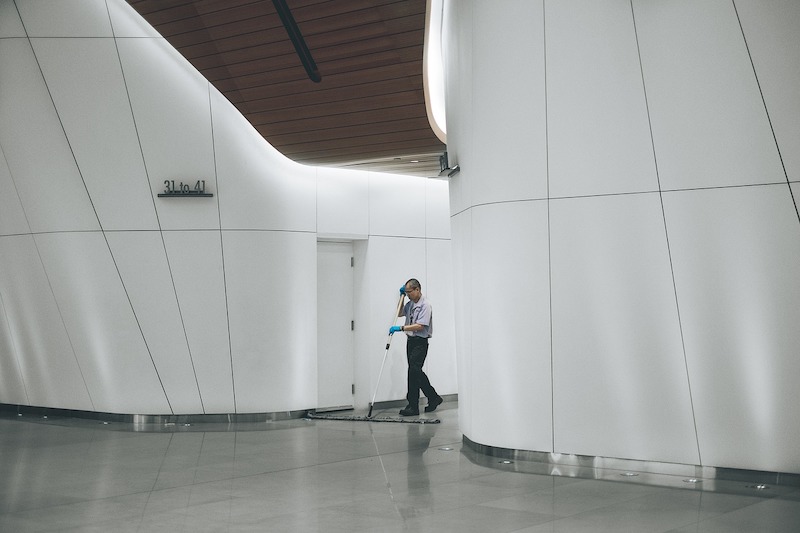A new Gensler report of 2,300-plus office workers found that at least half want companies to make some policy changes to keep them healthy before they return to work following COVID-19 shutdowns.
The study found that workers want stronger policies against coming to work sick, increased opportunities to work from home, and more rigorous office cleaning. A large majority of respondents said they’re more effective when they’re at the office and are eager to return.
The finding that workers prefer to work in the office is consistent with data that Gensler has collected since 2005. Prior to the COVID-19 pandemic, workers who had a choice about where to work spent 72% of their average work-week in the office, while just 12% worked from home.
Most respondents said they value face-to-face interactions over virtual ones, and miss their ability to communicate with their co-workers in person. To feel comfortable returning to the office, however, workers want their employers to adopt social distancing practices, and are open to adopting a shift schedule or a wider variety of working hours.
Related Stories
| Nov 29, 2012
Government policies help accelerate adoption of green building
Green procurement policies or green building mandates can help accelerate the adoption of green building practices, according to research by Timothy Simcoe and Michael Toffel.
| Nov 26, 2012
Minnesota law to spur development, job creation produced few jobs
Legislation that allowed local governments to direct excess property tax dollars from tax-increment financing districts into other private developments was supposed to kick-start construction hiring in Minnesota.
| Nov 26, 2012
How to boost resilient systems that are sustainable
Cities of the future can be both more resilient and more sustainable by promoting strategies that include solar power and green roofs, programs that minimize demand for energy, rain gardens, and permeable pavement.
| Nov 26, 2012
Developer of nation’s first LEED platinum skyscraper focuses on carbon reduction
The Durst Organization, the developer of the first LEED platinum certified skyscraper in the country, says it will not seek LEED certification for its residential pyramid planned for New York’s West 57th Street.
| Nov 26, 2012
Questions linger over ability of Miami's newer high-rises to withstand hurricanes
Some towers in Miami, rebuilt after a hurricane in 2005, were allowed to be constructed under older building codes instead of newer ones created after Hurricane Wilma.
| Nov 26, 2012
Changes in development and building standards needed for health of Potomac River
The Potomac River’s health stands to suffer if the region does not change its development and building standards, according to the Potomac Conservancy.
| Nov 16, 2012
South Dakota prefers LEED over building code on state projects
“(LEED is) much better than a mandatory building code because you get a little wiggle room in these projects,” said Mike Mueller, a spokesman for the South Dakota Bureau of Administration.












